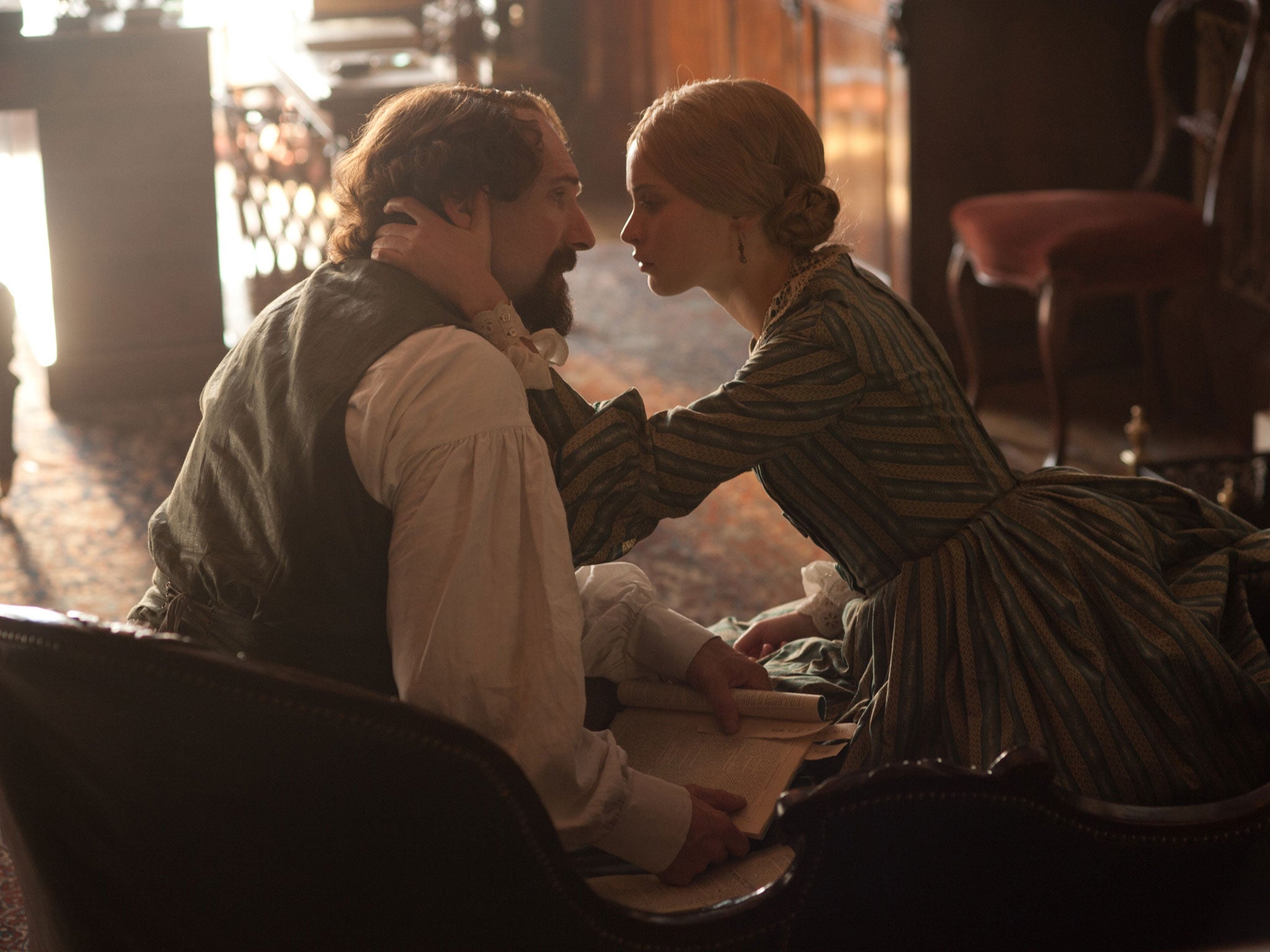The Invisible Woman, film review: 'Fiennes makes a bold attempt to push beyond conventional period drama'
(12A) Ralph Fiennes, 111 mins Starring: Ralph Fiennes, Felicity Jones, Kristin Scott Thomas, Michelle Fairley, Tom Hollander

In his second film as a director, Ralph Fiennes makes a bold attempt to push beyond conventional period drama. For all the period trappings and restraint, he is dealing here with raw and primal emotions. The screenplay, by Abi Morgan, is adapted from Claire Tomalin's book that explored the likely affair between Charles Dickens (Fiennes) late in his career and the young actress Nelly Ternan (Felicity Jones).
Fiennes and his team recreate 19th-century England with a precision that, in its more stifling moments, rekindles memories of Merchant Ivory. Everything from the bonnets the women all wear to the facial hair of the men, is detailed to the last thread and whisker. The lighting of interiors is deliberately muted, as if to invoke memories of Victorian photographs.
Everyone seems to wear layers and layers of clothing. At the same time, bodily functions are foregrounded. We see Dickens urinating in his bed pan. There are one or two sex scenes in which couples make love while still in their night dresses. A bloody and violent train crash is used in metaphorical fashion, to underline the seething discontent that the main characters all feel.
The early scenes in which we see Jones' Nelly some years after Dickens' death, wandering alone along Margate beach, can't help but rekindle memories of Meryl Streep looking equally forlorn in Karel Reisz's adaptation of The French Lieutenant's Woman. Nelly, now a teacher, is reminded of her affair when she helps stage a school production of the play that Dickens co-wrote.
In a vivid and mercurial performance, Fiennes captures Dickens' blazing energy, his love of theatre and his chafing unhappiness at his family life. In particular, Dickens is disgusted by his plump and long-suffering wife, Catherine (Joanna Scanlan). In one grim scene, we see him staring at her naked with ill-disguised contempt. In another, he tries to remove her from sight by blocking up the entrance between their rooms. Jones brings a mix of stoicism (late on) and passion (when she first falls for Dickens) to her role as the mistress who is never acknowledged.
The affair between Dickens and Nelly almost certainly happened but details about it are skimpy and open to conjecture – one reason, perhaps, why the storytelling here feels strangely tentative.
Subscribe to Independent Premium to bookmark this article
Want to bookmark your favourite articles and stories to read or reference later? Start your Independent Premium subscription today.

Join our commenting forum
Join thought-provoking conversations, follow other Independent readers and see their replies